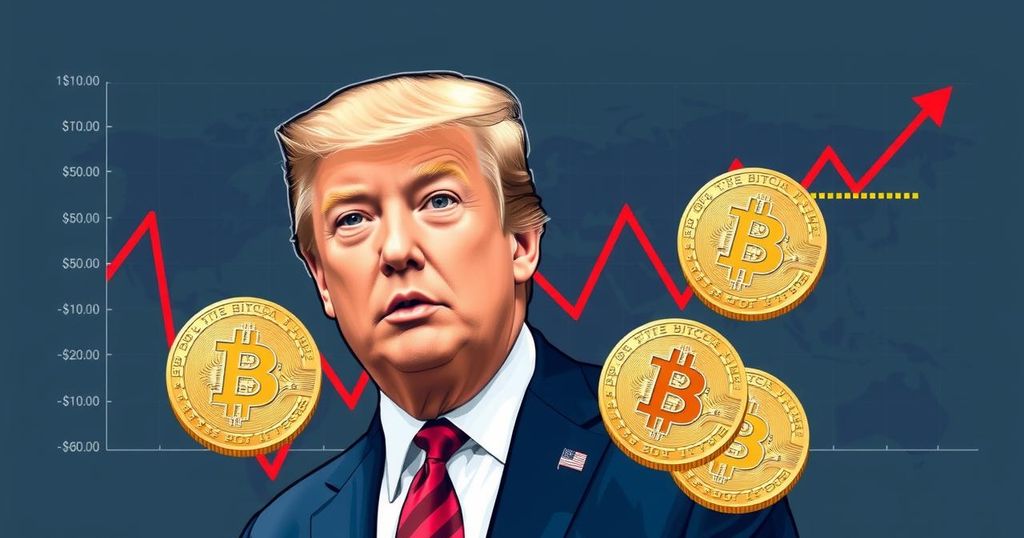Economic Trends of 2024: The Influence of Politics and Global Issues
The year 2024 was defined by significant economic trends influenced by global trade tensions, particularly under Donald Trump’s second presidency, which introduced protectionist policies, notably high tariffs. As governments worldwide sought to regulate technology industries, inflation and the cost of living drove voter dissatisfaction, leading to political upheaval in many countries. Bitcoin’s resurgence reflected shifting economic paradigms, while China’s economic measures underscored ongoing challenges within the global financial landscape.
The year 2024 was significantly shaped by pressing economic concerns as two billion people prepared to vote amid global instability. The COVID-19 pandemic had disrupted economies worldwide, causing a sluggish recovery in many nations, with inflation and the cost of living capturing voter attention. With Donald Trump’s electoral victory in the United States, the global economy braced for a new wave of protectionism, primarily aimed at China. Trump threatened steep tariffs on imports to protect American interests, raising distribution costs and challenging international trade agreements, including the US-Mexico-Canada Agreement (USMCA).
In addition to political upheaval, governments focused on regulating emerging technologies, particularly in the realm of artificial intelligence (AI). The European Union enacted several significant regulations, including the Digital Services Act and the AI Act, aimed at safeguarding users’ data and managing risks associated with AI technologies. Notable confrontation arose when Brazil’s Supreme Court enforced regulations on Elon Musk’s X platform, highlighting the growing tension between tech companies and regulatory bodies.
The electoral landscape revealed a cautionary tale as incumbents faced backlash over economic management, particularly in response to inflation and rising living costs. Countries across North America, Europe, and Asia witnessed significant political shifts, often resulting in the ousting of established governing parties. By contrast, Ireland’s electorate delivered a rare mandate to its ruling parties amid economic difficulties. This backdrop allowed influential business figures, notably Musk, to gain unprecedented power, signaling a trend of oligarchic influence in governance.
Bitcoin also experienced a remarkable resurgence as its value skyrocketed following Trump’s election victory, especially after the prospective shift in US policy toward cryptocurrency. Simultaneously, China grappled with economic fluctuations, prompting limited stimulus measures that were deemed insufficient by market analysts. Overall, 2024 highlighted the intertwining of politics and economic realities, illustrated by trade tensions, technology regulations, and shifts in the political landscape across multiple nations.
The general economic climate of 2024 was defined by the aftermath of the COVID-19 pandemic, which had led to rampant inflation and high living costs worldwide. As citizens prepared for elections in many countries, the economic landscape influenced their voting patterns. Trump’s return to power in the United States had implications for international trade policies, particularly regarding tariffs and protectionism. Meanwhile, the rise of digital technology prompted concerns about regulation necessary to protect consumer rights and prevent misinformation. The Chinese economy faced its own challenges, amplifying discussions on international economic stability.
In summary, the economic trends of 2024 were significantly influenced by political events, particularly Trump’s administration, which embraced protectionist policies that could reshape global trade. As governments dealt with rising inflation and the implications of technology regulation, voters demonstrated their frustrations, leading to substantial political shifts in multiple countries. The resurgence of Bitcoin amid these changes also emphasizes the evolving intersection of technology and economy. Looking forward, the balance between regulation, economic growth, and political stability remains a critical concern on the global stage.
Original Source: www.aljazeera.com




Post Comment